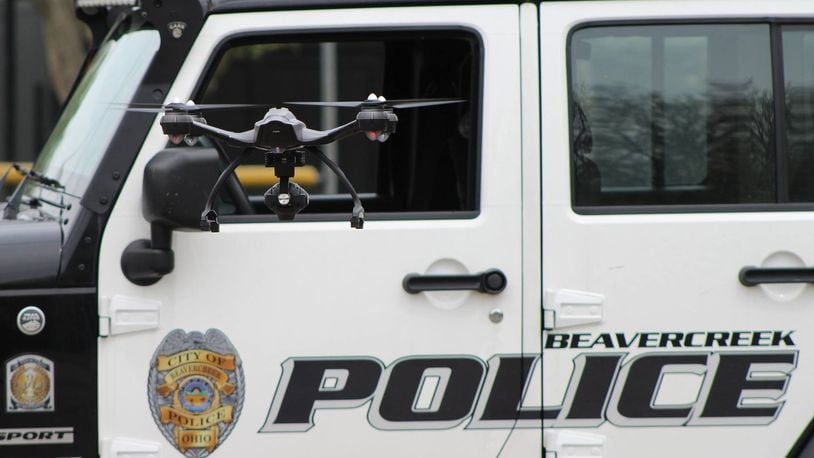RELATED: Beavercreek, Fairborn to start using drone technology
“It was an emerging issue that there was no model policy in Ohio,” said Dan Tierney, a spokesman for the attorney general. The guidelines were meant to help law enforcement agencies navigate the legal terrain and federal laws, he said.
“Each agency is going to have different needs for their programs,” he said.
Among other recommendations, the advisory group urged each law enforcement agency to determine its own set of approved uses of drones, avoid incidentally recording images of people not relevant to an approved use, and instructed law enforcement agencies to obtain a search warrant “before any use where people would have a reasonable expectation of privacy.”
RELATED: Privacy, jobs fuel debate over drones
Police agencies have said drones have proven valuable in finding missing persons or tracking criminal suspects, among other uses.
Gary Daniels, chief lobbyist of the American Civil Liberties Union of Ohio, said the recommendations were “inadequate” because they don’t address the potential for widespread or around-the-clock surveillance.
State legislators need to enact laws with “real teeth” the recommendations lack, he said.
“Broadly, these are just recommendations,” he said. “What we really need is statewide law that applies to everybody, but also allows for some flexibility” between different-sized municipalities and agencies.
RELATED: Eyes in the sky: Law enforcement drone-use sparks privacy concerns
Daniels indicated that relying on case law as a precedent wasn’t enough, particularly with new “invasive technology” such as drones and license plate readers.
“The way the courts see reasonable expectations of privacy when it comes to surveillance is essentially you step foot outside your door and your expectation of privacy is almost nothing,” he said.
He also said the report did not address the issue of police agencies potentially weaponizing drones. But he did say it was useful that it urged a recommended time limit on retaining surveillance imagery.
Other key recommendations in the report urged law enforcement agencies to: Work with legal counsel to develop guidelines for the use of drones; ensure every drone operator is licensed by the Federal Aviation Administration and receives annual training; and when hiring an outside agency to conduct drone surveillance, the law enforcement agency should retain ownership and control over the data collected.
About the Author
